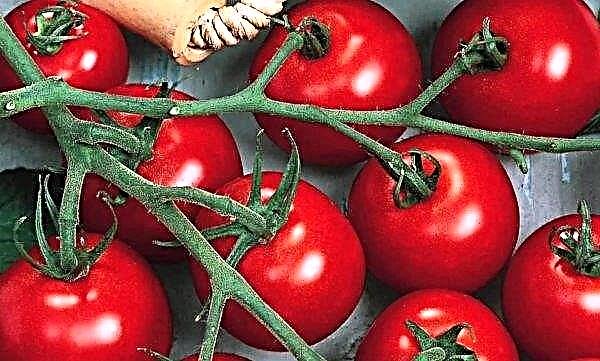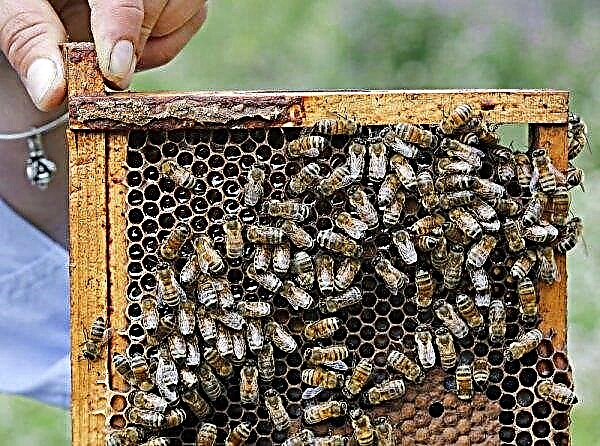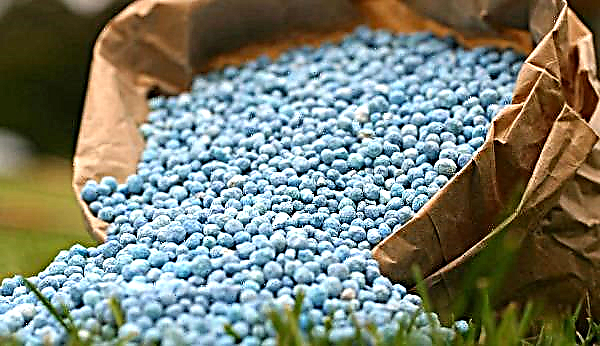Representatives of the salmon family, which until recently during the spawning period literally overwhelmed numerous rivers of the Northern Hemisphere, today are less and less common in the wild, and therefore many names of these fish are gradually forgotten and come out of the lexicon. So, for example, with the correct pronunciation of the word “chum” and its derivatives, sometimes difficulties arise. About which syllable should be stressed, talking about this type of red fish, and we will discuss below.
Which syllable should be stressed in the word “chum”
In the Russian language, the name of this species of salmon came from the golds - one of the many branches of the Amur Tunguska tribes, also known as hetseni, hodzeny, hezhe or Nanai. Interestingly, the translation of "keta" simply means fish. In the language of the source, emphasis was placed on the first syllable, it was in this version that it migrated to some dictionaries and encyclopedias.
As modern examples of such sources, it is worth mentioning the Great Russian Encyclopedic Dictionary (BRES), the first edition of which was published in 2003. One of the most famous Russian linguists A.A. Zaliznyak (1935–2017), the author of the famous “Full Accentuated Paradigm”, also considers it correct to emphasize the word “keta” on the first syllable.
Did you know? The largest representative of the salmon family is Chinook salmon. The body length of one individual can reach 2 m, and the maximum weight that has ever been fixed was 61.2 kg.
A similar position can be drawn from sources such as:
- A large explanatory dictionary of correct Russian speech. The author - L.I. Skvortsov.
- Spelling Dictionary edited by Professor V.V. Lopatin.
- The new dictionary of the Russian language. Interpretative and derivational. The author is T.F.Efremova.
- Russian verbal stress. Dictionary of Common Names. Author - M.V. Zarva.

However, despite this, the name of a valuable salmon fish today sounds much more often with an emphasis on the second vowel sound, and this is not considered a mistake. Most scholars agree that both variants of pronunciation are equally valid. Much more interesting is the case with an adjective derived from the name of the fish and used, for example, with reference to its caviar - a product almost more valuable and beloved than the carcass itself.
Important! In the Russian version of the word "keta ”stress can fall on both the first and second syllables, which is confirmed by many spelling and explanatory dictionaries. The first method of pronunciation is more common in colloquial speech, but the second is closer to the original source.
Since in the word “keta” the variant with the shock letter “o” gives rise to a certain semantic contradiction (it is not clear whether we are talking about a product obtained from chum or whale, and if the whales don’t toss caviar, then, say, the meat is like kettle, and whale), intuitively it seems that it is right to say “ketov” with an emphasis on “e”. In fact, this is not so, and here the rules are strict and unambiguous: in the adjective from the word "keta", the emphasis is placed only on the second syllable.
Examples in the sentence
A chum is a declined noun, used in both singular and plural.
In the sentence, this word is used in different cases, for example, as follows:
| Case | Singular | Plural |
| Nominative | Keta is a species of red fish. | Kets live, on average, for about 7 years. |
| Genitive | Chum salmon has very tasty caviar. | Ket cannot be found off the coast of Australia. |
| Dative | During the day of spawning, Kete has to swim up to 50 km against the current. | Kets tend to guard their offspring. |
| Accusative | Ketu should not be included in the diet of children under three years of age. | Kets are sold chilled or frozen. |
| Instrumental | No matter how useful this fish may be, you cannot eat one chum. | Previously, the Far Eastern rivers were literally teeming with keta. |
| Prepositional | Many verses have been written about chum. | It is customary to talk about two different chum salmon - summer, living in the northern latitudes, and autumn, found in the southern seas. |
How to remember the correct stress
Actually, problems with remembering the correct pronunciation of the name of the fish should not arise, because in a word consisting of two syllables, both stresses are considered permissible. Traditionally, as the best techniques for fixing the rule in memory, it is worth using poems or songs, where the searched word clearly fits into the size, and ideally, it rhymes with another.
There are not so many songs about a specific representative of the salmon family, although connoisseurs of the work of Vladimir Vysotsky may recall:
“I sang and thought: here is the caviar, And, they say, chum salmon died in the rivers ...”
But in verses this delicious fish is mentioned quite often. Moreover, as a rule, also with emphasis on the second syllable. Here are just a few examples.
At Fazil Iskander ("Night fishing off the coast of Kamchatka"):
"... Crushing grass with a blow of the tail, Pours fish - pink salmon, chum ..."
At Nikolay Zabolotsky ("Fish shop"):
"... Beneath her, the chum salmon burned with meat, Eels like sausages, In smoked splendor and laziness Smoked, bent knees ..."
Did you know? The salmon family includes 3 subfamilies and 11 genera, and the average size of the smallest representative of these fish is 2.5 cm, and the largest - 2 m. Scientists believe that salmon live on our planet for about 100 million years, while the age of mankind does not exceed 3 million.
Alexander Grishin (“Keta”):
“The autumn course of chum salmon is in full swing, She is rushing to the headwaters of the Choir ... What passion, what strength, by nature was given to Chum!”
At Takhir Suvkhanov:
“The last path to the origins of his life is chum. She can’t get out of the way. ”
And a child’s humorous poem by Igor Shandra about a dream come true is very simple to remember. In it, the simple-minded salmon fish, when meeting with a huge Whale, complained that it wanted to visit China. In response to this, Keith said that he was just going to those parts and promised to fulfill the desire for stupid fish. And so it happened, however, the unfortunate one came to China in the stomach of an insidious giant. Anyone interested can freely find this short and slightly sad verse on the Web, although in reality there is no need to memorize it. It is enough to remember that the name of the fish rhymes with a large marine mammal (in a certain case), as well as with the word denoting the most cherished desire. It is clear that both “whale” and “dream” with “chum” can be rhymed only if you emphasize the second syllable in this word.
From what is recalled, the emphasis on the first syllable in the name of salmon fish was put only by Andrey Voznesensky.
In the poem "From the Tashkent Report" there are such lines:
"Well, are you out of trouble? Wait a bite of chum salmon. Be just as clean. Help Tashkent."
To remember, however, the option is not the most successful, since with Tashkent the name of the fish in the instrumental case rhymes very conditionally. But in general, lovers of poetry can choose for themselves any of the above quotes as a kind of "cheat sheet", because they are generally correct, and at the same time enjoy the work of great poets again. Those who find such methods too complicated may act differently by inventing your own rhyme for the word you are looking for.
Important! Adherents of the theory, according to which the only correct pronunciation of a word with an accent on the first syllable, offers for memorization a primitive rhyming phrase: they took smoked chum salmon, wrapped a fish in a newspaper.
It is interesting that red caviar from a specific variety of salmon, that is, the adjective “keta,” is often mentioned in verses with emphasis on the first syllable, which, as was indicated, is considered incorrect.
For example, David Katzman writes about her like this (poem "At a concert"):
“A miracle happened, the hall parted the walls, It smelled of snow, keta caviar, A good glass of vodka after the shift, Sauerkraut, a slaughter snack.”
Or the magnificent Sasha Black in the poem "A man in a paper collar" describes this chain of events:
“You’ll come in and take the polenditsa and the keta (quarter) caviar, you will become attached to the fat girl, spend, offer gifts.”

Definition: chum
Since perhaps someone is hearing about a fish such as chum salmon for the first time, it is worth saying a few words about it.The Latin name of the species is Oncorhynchus keta. We are talking about the most numerous, after pink salmon, representative of the salmon family, which lives in the vast territory of the Pacific and Arctic Oceans.
Did you know? During spawning, salmon eat nothing, but fishermen still sometimes manage to catch this fish in the river. It turns out that the female rushes into the bait not in search of food, but in order to protect the eggs from numerous predators, including small fish, which the "naked" mormyshka is called to represent.
During the spawning period, Oncorhynchus keta enters the beds of freshwater rivers, due to which it is found in such reservoirs as:
- Amur;
- Lena;
- Hunting;
- Indigirka;
- Yana;
- Kolyma;
- Ussuri;
- Bikin;
- Mackenzie (Canada);
- Columbia (Canada);
- Yukon (Canada and the USA, Alaska).

In size, Oncorhynchus keta is smaller than salmon, but larger than pink salmon. The average size of an adult is 50–70 cm in length, and the mass varies between 1400–2200 g. Some specimens grow to 7 kg, but different data are given regarding the maximum sizes of the species that have ever been recorded: in some sources indicate that the largest Oncorhynchus weighed 15.90 kg and had a length of 1 m, others say a weight of 21 kg and 109 cm of body length.
A characteristic distinguishing feature of the species is bright silver scales with pale pink stripes that appear during spawning.Oncorhynchus is valued for its delicious meat, rich in vitamins, trace elements, and omega-3 and omega-6 polyunsaturated fatty acids.
In cost, this fish is significantly inferior to Atlantic salmon (salmon), but ahead of its main competitor - pink salmon. For comparison: in Moscow, the price of a chilled salmon carcass is at least 900 rubles. for 1 kg, while Pacific salmon (chum salmon) can be bought at a price of 350-480 rubles, and pink salmon - for less than 250 rubles. But of all types of red caviar, the most expensive is just keta, thanks to the largest size and bright orange color.
Important! In the ranking of varieties of red caviar, the smallest is the salmon roe, and the cheapest, due to the highest supply on the market, is the pink salmon roe.
In addition to Russia, commercial fishing is carried out in China, Korea, Japan, Canada and the United States (California and Alaska). There is no consensus among scientists about the correct pronunciation of the word “chum”.
The variant with emphasis on the first syllable is definitely true but also the vowel sound “a” as a percussion, most often used in colloquial speech, is considered by many linguists as permissible. But in the word “ketovy” emphasis should be made on the second syllable, although this seems inconvenient due to the same sound with another adjective, also associated with the inhabitant of the deep sea.












